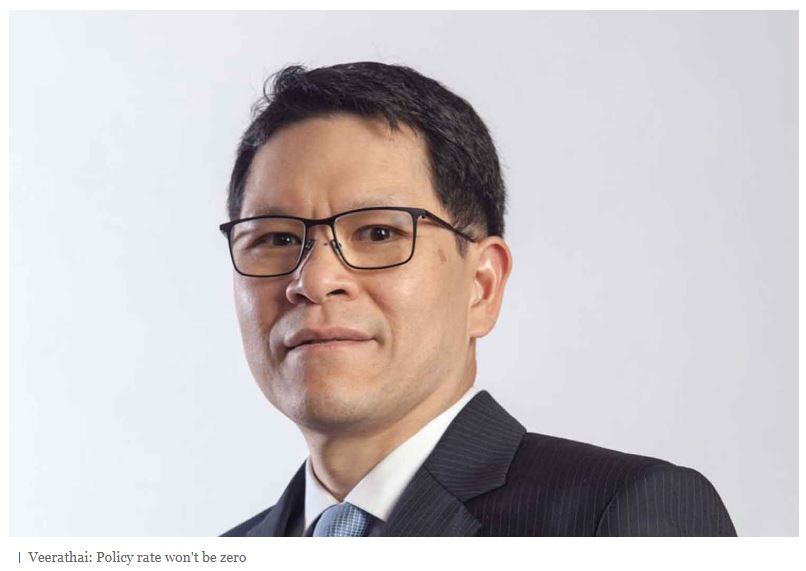Thailand: BoT predicts two-year recovery path
Thailand’s economy is expected to take two years to fully recuperate, assuming there is widespread administration of a coronavirus vaccine, says the Bank of Thailand’s chief.
“The intermittent outbreaks are also accounted for under the central bank’s predictions,” said governor Veerathai Santiprabhob. “New infections of 20-30 cases per day are manageable under the country’s public health [system].”
The central bank believes that the economy will start to pick up this quarter after bottoming out in the second quarter, Mr Veerathai said.
Domestic consumption showed signs of recovery near the end of the second quarter, supported by the government’s easing of the lockdown measures, he said.
Supply-side economic stimulus is an important factor boosting recovery impetus in the post-pandemic period.
Fiscal policy focused mainly on enhancing employment and financial assistance among businesses will help support growth potential after the crisis ends, Mr Veerathai said.
The government and regulatory bodies sought to strike a balance between fiscal and monetary policies to support recovery momentum and help affected parties through cash transfers and debt relief measures.
While there is a need to maintain an accommodative monetary policy, the policy interest rate is unlikely to be reduced to zero from an all-time low of 0.50%, Mr Veerathai said.
“The [latest] policy rate cut has been passed on to market rates efficiently after banks’ loan rates declined by 67-103 basis points, which would relieve financial burdens for borrowers,” he said.
The central bank has revised down Thailand’s GDP for this year to an 8.1% contraction from a 5.3% decline projected previously. The economy is forecast to expand by 5% in 2021, up from 3% growth expected earlier.
Thailand has been cited as a success story in containing the outbreak, having gone more than 40 days without any local transmissions. Yet Bloomberg has reported that Thailand’s economic outlook is the darkest in Asia.
An 8.1% GDP contraction is the worst official forecast for any of the main economies across Asia and would be the country’s biggest GDP decline ever, surpassing even the plunge during the Asian financial crisis over two decades ago, according to Bloomberg.
Economic restructuring is needed, especially for labour market development in the post-pandemic period, Mr Veerathai said.
The central bank’s Monetary Policy Committee has voiced its concerns over higher unemployment triggered by the pandemic. The unemployed workforce is expected to grow, with the main cluster comprising new graduates, ageing labourers and unskilled workers.
The process of reskilling and upskilling workers is necessary to prepare for the new working environment in the post-pandemic period, Mr Veerathai said.
Manpower will also be replaced by automation against the backdrop of an excess in manufacturing capacity.
With this scenario, Thailand needs economic restructuring, particularly in terms of technology adoption in the labour market, he said.
Employment will support domestic consumption and economic recovery after the outbreak comes to an end.
Although the central bank will further lend support to debt relief measures to aid both individual and commercial borrowers to overcome the crisis, it will not extend the suspension of principal and interest payments for SME loans, a scheme that expires in October, Mr Veerathai said.
Source: https://www.bangkokpost.com/business/1951456/bot-predicts-two-year-recovery-path


 Thailand
Thailand




